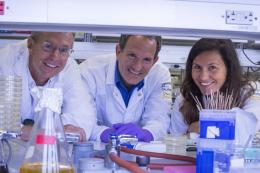Content:
Bacteria are pretty wily creatures. Take for example, an organism such as Salmonella, which are killed by antibiotics in lab tests, but can become highly resistant in the body.
It is an example of what UC Santa Barbara biologist Michael Mahan refers to as the Trojan horse strategy. Identified through new research conducted by Mahan and his colleagues, the Trojan horse strategy may explain why antibiotics are ineffective in some patients despite lab tests that predict otherwise. The research findings appear in the journal EBioMedicine.
"We are not petri plates, and we need to revisit the way antibiotics are developed, tested and prescribed," said Mahan, a professor in UCSB's Department of Molecular, Cellular, and Developmental Biology (MCDB). Current methods for testing resistance to antibiotics do not reflect the actual and varying environments in the body, where bacteria fight to survive. Mahan noted that this difference can render antibiotic susceptibility testing inaccurate.
"Prescription of the wrong antibiotic may not only fail to clear the infection but may create the perfect storm for the emergence of superbugs in infected patients," he added. "Even in our most advanced hospitals, high drug doses are given to infected patients without knowing that the body's environment may render bacteria inherently resistant to the very antibiotics prescribed to control them."


